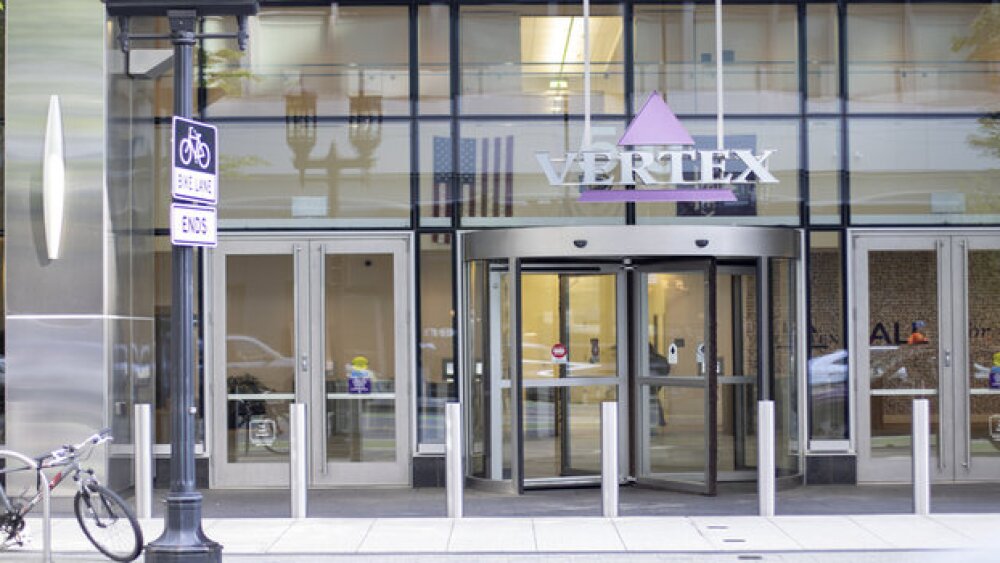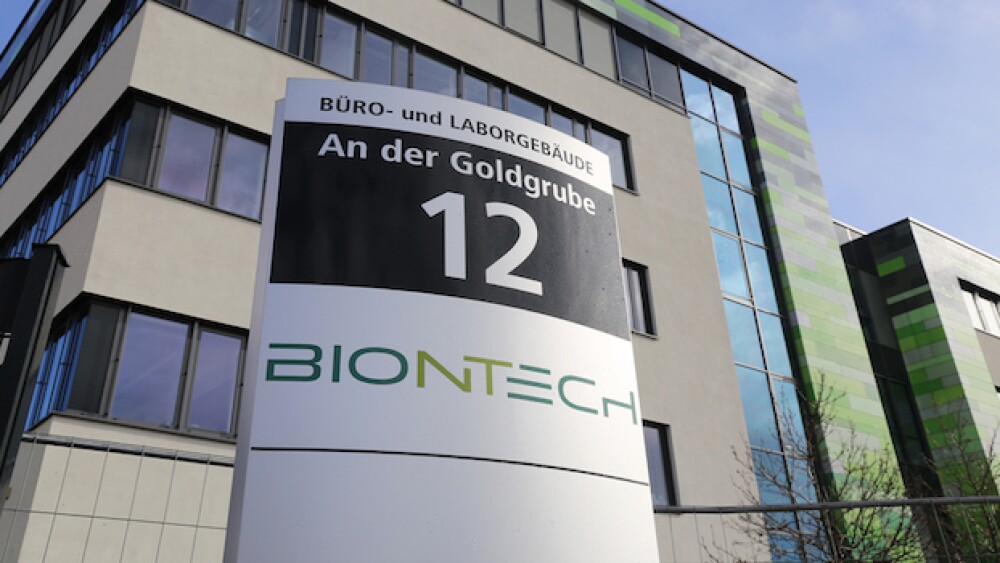BioSpace takes a look at some of the announcements that occurred Monday and will continue to update throughout the week.
Mike Kemp/In PIctures via Getty Images
The J.P. Morgan Healthcare Conference kicked off with a different look this year, a virtual platform due to the ongoing COVID-19 pandemic. Instead of the hustle and bustle of navigating hotel halls in San Francisco, pharma executives and investors only had to navigate Zoom calls and online presentations.
BioSpace takes a look at some of the announcements that occurred Monday and will continue to update throughout the week.
BioNTech’s Big Bet – The past year has been a good one for Germany-based BioNTech. The company quickly developed a vaccine for the novel coronavirus and then partnered with Pfizer to develop the medication. Pfizer and BioNTech’s mRNA vaccine, BNT162b2 demonstrated a 95% efficacy in clinical trials and has since received authorization for use in the United States, Europe and the United Kingdom. During a Monday presentation at J.P. Morgan, BioNTech Chief Executive Officer Ugur Sahin announced an aggressive vaccine manufacturing plan for the rest of the year. Sahin said the company intends to supply up to 2 billion doses of the vaccine by the end of the year. Manufacturing efforts will be supported by three U.S. based facilities, one in St. Louis, one in Kalamazoo, Michigan and one in Andover, Michigan. Three European facilities will also support ramped up manufacturing efforts for the mRNA vaccine, Sahin said.
While COVID-19 is the infectious disease of the moment, Sahin said it’s not the only threat in the world. Infectious diseases represent a long-term growth pillar for BioNTech and many of them do not have available vaccines or therapies. The company will use its mRNA technology to develop vaccines for HIV, influenza and tuberculosis.
Takeda’s Financial Goals – Over the course of the next decade, Takeda Pharmaceutical has a goal of reaching $47 billion in annual revenue by 2030. That financial goal represents a 50% growth from 2019, the company said at the conference. CEO Christophe Weber said the company’s externally-facing R&D engine has generated an innovative and modality diverse pipeline of approximately 40 clinical-stage new molecular entities (NMEs) that will help Takeda reach that lofty financial goal. The majority of revenue growth is expected to come from the company’s Wave 1 pipeline, which includes 12 unique NMEs, representing potential best-in-class/first-in-class therapies and its existing 14 global brands, the company said. That Wave 1 program includes five pipeline assets that have received Breakthrough Therapy designation and three that have been granted Fast Track designation by the U.S. Food and Drug Administration. Twelve pivotal milestones, including five pivotal data readouts, are expected through fiscal year 2022 with additional near-term development milestones expected across all Wave 1 programs, the company said. Assets in the Wave 1 pipeline include TAK-003, the company’s tetravalent dengue vaccine candidate. Dengue is the fastest spreading mosquito-borne viral disease and was recognized by WHO to be one of the top ten threats to global health in 2019. Also in Wave 1 is TAK-755, a potentially transformative therapy for thrombotic thrombocytopenic purpura (TTP), a rare and life-threatening clotting disorder.
Updated 2020 Guidance – Gilead Sciences made waves in 2020 with the only COVID-19 antiviral to receive full approval from the FDA. On Monday, the company revised its guidance for 2020 to $24.30 billion to $24.35 billion, which was largely driven by the ongoing COVID-19 pandemic. Increased hospitalizations due to the virus have meant more people are receiving Veklury (remdesivir). CEO Stephen O’Day said use of Veklury has jumped from about 30% in October to nearly 60% due to the spike of COVID-19 cases.
A Multi-Franchise Portfolio – Biogen CEO Michel Vounatsos said the Boston-based biotech’s goal is to build on its multiple sclerosis, spinal muscular atrophy and biosimilars businesses to diversify into a multi-franchise portfolio. Vounatsos said the company has made significant progress delivering on this strategy and expects “significant regulatory and clinical milestones” in 2021. He predicted this year will be transformative for Biogen.
“Importantly, we have enhanced our pipeline by increasing the number of disease areas. We are targeting leveraging the interconnectivity neuroscience, including new programs with genetically validated targets, new modalities and new biosimilars,” Vounatsos said, according to a transcript.
Biogen is waiting with bated breath for the potential approval of its Alzheimer’s disease treatment, aducanumab. Vounatsos said he is confident in the clinical profile of aducanumab in Alzheimer’s and believes the data supports approval. In addition to aducanumab, Biogen is also advancing BAN240 and BAN241.
Accelerated Growth – Regeneron is looking at a period of accelerated growth due to several anticipated launches, the company said Monday. CEO Leonard Schleifer said the strength of the company’s core products, a wave of new launches, and a broad pipeline positions Regeneron for “continued and frankly for accelerating growth.” Schleifer said there is continued market growth for its Eylea business and noted that Dupixent, which iy has partnered with Sanofi on, is “transforming the treatment of type 2 inflammatory diseases.” Immuno-oncology is also predicted to be a driver for the company. Regeneron’s Libtayo was the first approved anti-PD-1 in cutaneous squamous cell carcinoma, and Schleifer said there are more indications coming for the drug.
“We’ve got priority review in second line, BCC (basal cell carcinoma) as well as priority review in non-small cell lung cancer. That priority review is important, because we think it reflects the fact that we have some differentiation in terms of the patient population that we studied. And frankly, we think of Libtayo as potentially best-in-class and we’ll have to see how it all plays out,” Schleifer said during the presentation.





